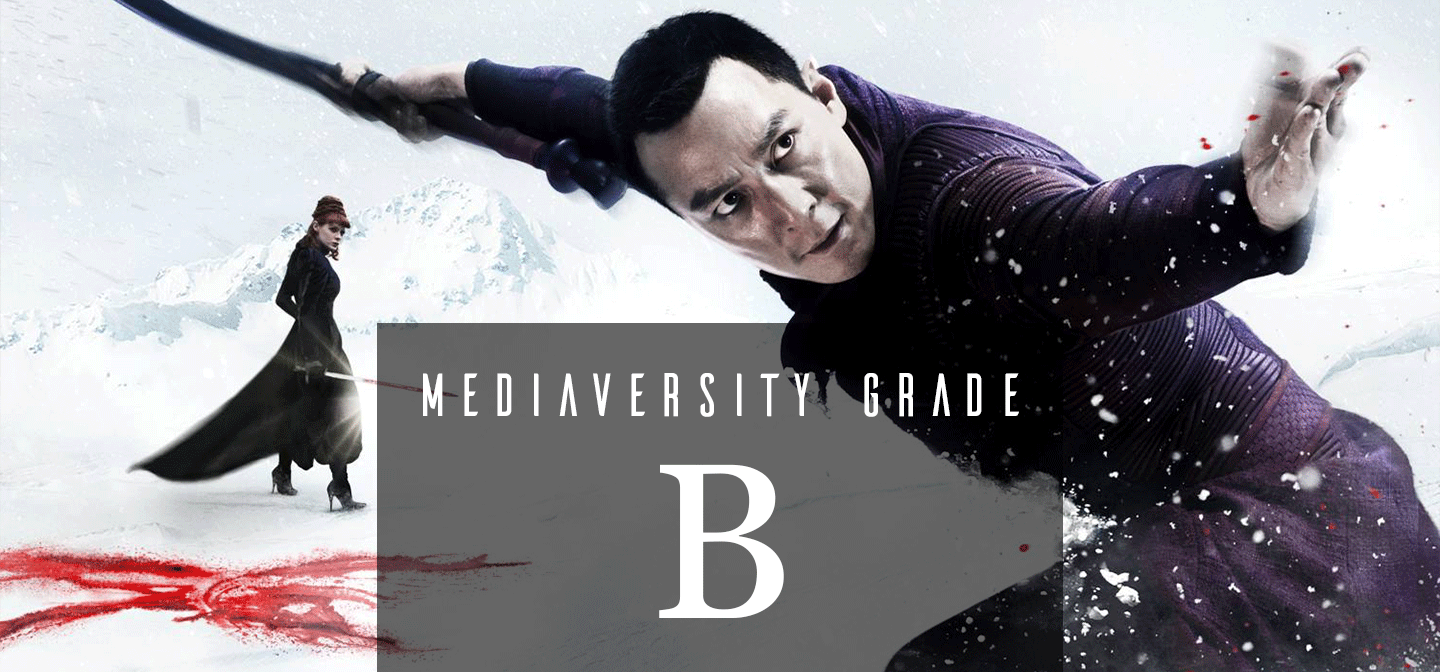Master Z: Ip Man Legacy
“Michelle Yeoh continues to be #LifeGoals.”
Title: Master Z: Ip Man Legacy (2018) / Traditional Chinese: 葉問外傳:張天志
Director: Yuen Woo-Ping 👨🏻🇨🇳🇭🇰
Writers: Edmond Wong 👨🏻🇭🇰 and Chan Tai Lee 👨🏻🇭🇰
Reviewed by Li 👩🏻🇺🇸
Technical: 3.5/5
Keep an eye out for Master Z: Ip Man Legacy when it lands Stateside on April 12. The latest in Hong Kong's successful Ip Man series—inspired by real life wing chun master by the same name—doesn't deviate from kung fu movie norms. But the venerable director Yuen Woo-Ping continues his brand of inventive martial arts with Master Z, a film that succeeds at its modest goals of delivering high production values and whipcrack action. If you’ve seen any of Yuen’s past works, whether his 1970s classics or his choreography in films like The Matrix (1999) or Crouching Tiger, Hidden Dragon (2000), you’ll know you’re in for a visual feast.
The end result is a breezy good time, especially on the big screen if you can catch it in theaters. Just don’t go in expecting any kind surprise. The film’s standard redemption plot and rote characters require little to no thought, so take it at face value.
Gender: 1.5/5
Does it pass the Bechdel Test? YES, but barely
By virtue of Michelle Yeoh alone, who plays gang leader Tso Ngan Kwan, Masters Z enjoys a badass woman whose fight scenes prove the 56-year old Yeoh still has it going on. Her backstory does feel more complex than those of other supporting roles, but that’s not difficult considering the flatness of most characters in this film. Unfortunately, she does remain attached to the narrative of her idiotic younger brother Tso Sai Kit (Kevin Cheng) and has only been granted power thanks to her father’s legacy, not because she earned it herself in any way.
And that’s the good part. After Ngan Kwan, the other two female characters fall deeply down the well of sexist tropes. Julia (Yan Liu) plays the romantic lead who gets a few cutesy whacks in to prove she isn’t totally useless ... but then is totally useless for the rest of the film and desperately needs the protagonist, Cheung Tin-Chi (Jin Zhang), to be her savior. She gets saddled with Tin-Chi’s kid as he goes traipsing after revenge, so she doubles as free childcare.
Then we have Nana (Chrissie Chau). Oh, Nana. One of the only times Master Z squeaks past the Bechdel test involves Julia bringing Tin-Chi and his son back to their apartment, only to see Nana standing in the hallway in just her underwear. (Yes, the fanservice is as blatant as it sounds.) Julia chides Nana for not wearing any clothes around the house, and Nana huffs back that Julia’s no better. And there we have it! One of only two times the film passes the Bechdel test.
Nana (Chrissie Chau) passing the Bechdel test for Master Z: Ip Man Legacy (2018).
Nana’s story is especially trash. She plays the love interest of Julia’s brother, Fu (Xing Yu). As her boss, Fu chases Nana’s skirts, even though she never appears to like him and definitely doesn’t return his affections. Still, the testosterone-filled movie never critiques Fu’s workplace harassment and still posits their relationship as a romantic one, despite it being firmly one-sided.
All of this can be chalked up to generic toxic masculinity that rules the wuxia genre—you have strong but flat women who can fight (Ngan Kwan), homemaker “good girls” (Julia), or drug-addled “bad girls” who get slapped around (Nana). As for the men, Tin-Chi is just as immature as any other action hero who can never turn the other cheek. Ignore the genre’s noncommittal proclamations about only using martial arts to defend oneself—actions speak louder than words.
And by “action,” Tin-Chi picks up every single gauntlet that’s been tossed in his direction. Did a drunk customer throw money in your face? Smash his belongings! Has a gang burned down your house? Burn theirs too! Did someone kill your friend? Drop your kid off to the closest woman and embark on a potential suicide mission to kill him back! This rinse-and-repeat one-upmanship goes back and forth with only Yeoh’s character bothering to rise above any of it.
Race: 5/5
Foreign films that feature non-white casts perform well at Mediaversity, since they diversify what Americans (and to a broader extent, westerners) see onscreen. Master Z is no different, with its inclusion of a nearly all-Asian cast and telling moments of Hong Kong history. It feels illuminating to see American Navy men take over the island’s bar scene, or to follow a storyline about the heroin trade in 1960s Hong Kong. Moreover, Master Z’s main thread of anti-imperialism against the British and Americans provides extra insight to the wuxia genre as a whole, which has long celebrated heroes from modest means who go on to fight The System … an attribute that makes sense when you consider Britain’s colonization of Hong Kong for over 150 years, a period that only ended in 1997.
In Master Z, screenwriters villainize British law enforcement and an American drug lord, Owen Davidson (played by Dave Bautista, who is half Filipino), although with different amounts of nuance. The British come off as caricatures while Davidson enjoys much more balance. But together, these corrupt figures give Hong Kong and Chinese audiences easy targets to rail against.
While none of this material feels remotely progressive within the context of Hong Kong cinema today—especially when the island’s modern challenges include political pressures exerted mainly by the Chinese government—it's still an important reminder for American viewers to see how others might perceive us. It’s one thing to know it cerebrally, but it’s another to watch a low-stakes movie that de-centers an American worldview.
Mediaversity Grade: C+ 3.33/5
Enjoy Master Z for the glorious action sequences. Also, Michelle Yeoh continues to be #LifeGoals.
Damn, girl.







